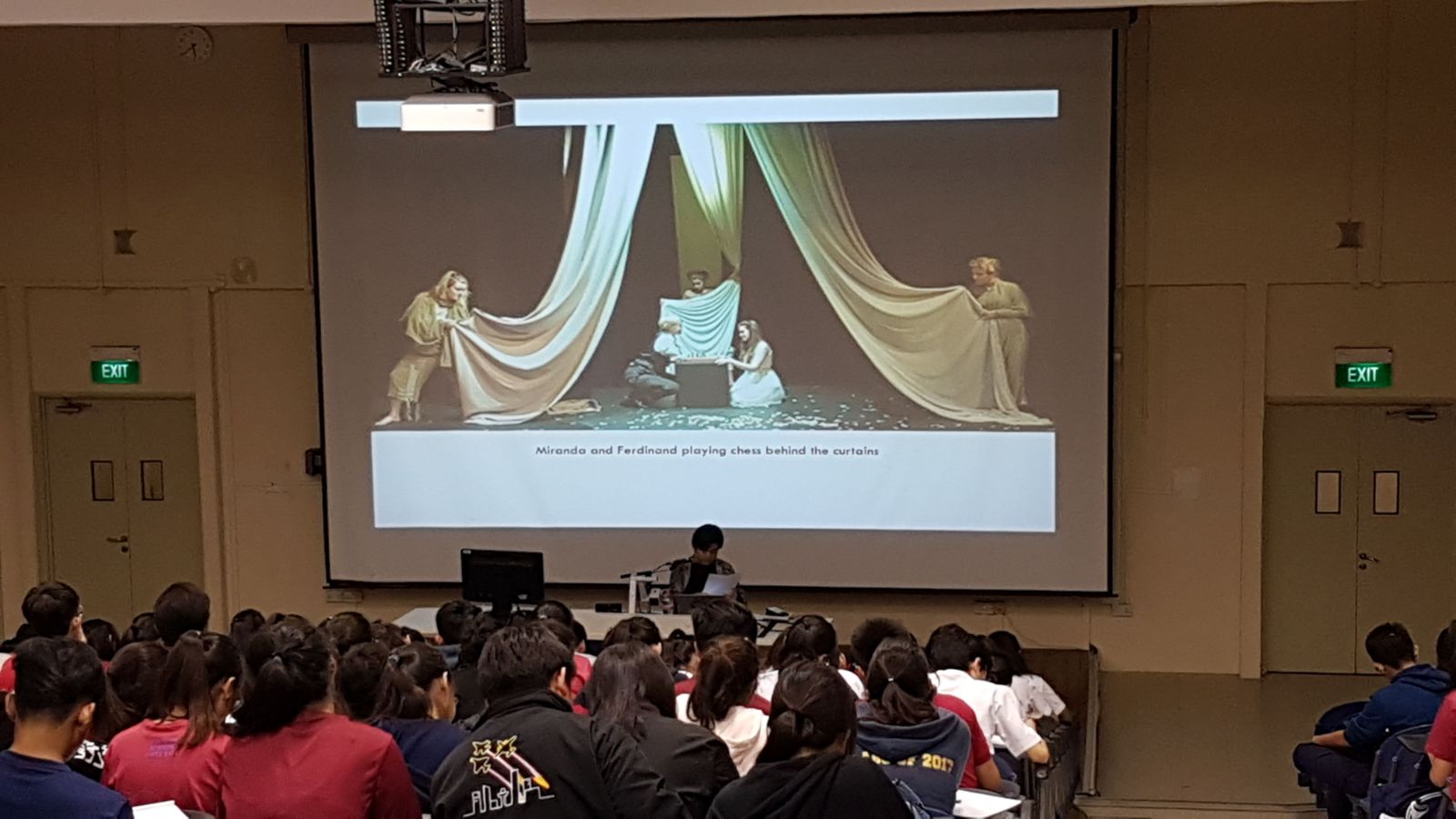Literature Enrichment (Alumnus guest lecture)
On the 5th and 6th of April, ACJC invited Ms Annabel Tan, an alumna of ACJC & a current Ministry of Education Scholarship holder, to give a lecture on William Shakespeare’s The Tempest to students from various junior colleges.
This lecture was held in conjunction with ACSian Theatre’s production of The Tempest and served to provide some literary context and insight prior to the play. Ms Tan focussed on the key themes of the play, as well as ways in which it has been uniquely adapted across various productions and cultures to engender a different literary effect altogether.
Prior to the lecture, she presented a short clip of a Bengali adaptation of the play that was performed by Dhaka Theatre from Dhaka, Bangladesh at The Globe Theatre in London, to illustrate a modern, and unorthodox interpretation of a Shakespearean play. Ms Tan also mentioned that the despite the fact that Renaissance plays were produced centuries ago, it is still possible to underline contemporary concerns such as colonialism and slavery through modern-day adaptations, a WhatsApp Image 2018-04-06 at 08.55.58.jpegs seen from the ACSian Theatre production’s postcolonial slant.

The Tempest deals with issues such as Renaissance anxieties with regard to political and monarchical power, and presents pastoral Edenic space, juxtaposing nature with the craftsmanship and sorcery of Prospero which defies the natural order. The key themes that Ms Tan discussed with the lecture group included Power, Colonialism, Loss & Reconciliation, as well as Justice in Reconciliation, which definitely provided students with a deep insight into the workings of the play that is crucial to our study of the text.
Bringing in some cultural context and comparing The Tempest to the other works of Shakespeare, Ms Tan also briefly mentioned how the censorship of Shakespearean plays throughout history has brought about varying interpretations in presenting the ideals of the era of the time of the production. She then wrapped up the lecture by going through the Metatheatrical elements of the play that enhance the literary meaning of the play as a whole, which enabled us to further appreciate the theatrical features of ACSian Theatre’s production later in the evening.
We would like to extend our appreciation to Ms Annabel Tan for taking time out of her busy schedule—amidst judging debates for the Oldham Cup—to provide us with such an enlightening overview of the text. Her involvement is testament to the strong culture of service characteristic of ACJC Alumni. We would also like to thank the College, and particularly our HoD of Arts, Mrs Geetha Creffield, for arranging this opportunity for us to gain a broader insight to this fascinating text.
Sharlene Lim, 2AH

